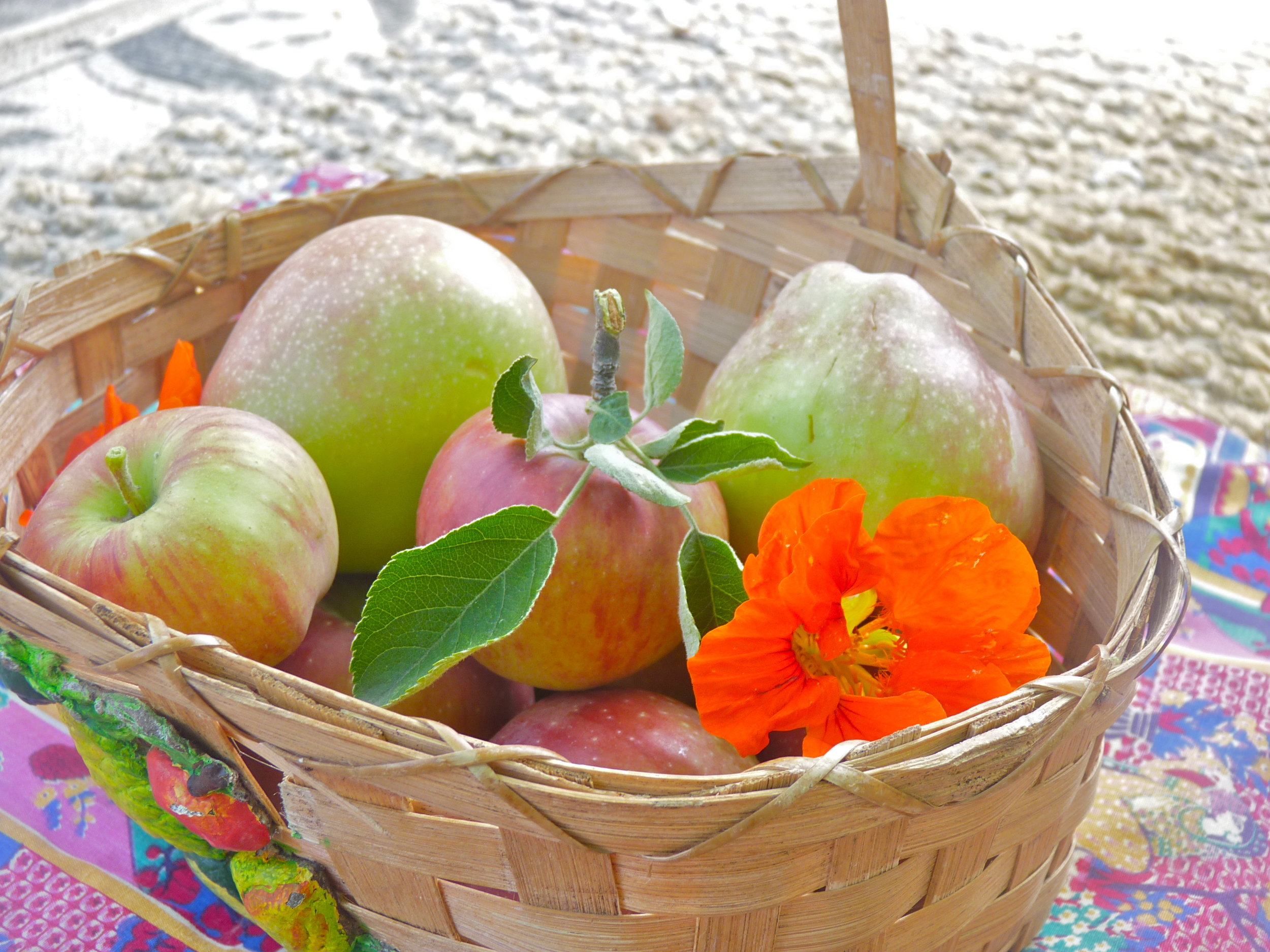Apple | Sevam
/We are all familiar with the adage, "An apple a day keeps the doctor away." Indeed, apple is such an important medicinal food that it has found a place in the texts of Ayurveda, where it is known as sevam (or in Hindi seb). When I lived in India in the 1980s, an apple was a rare treat, since at the time they mainly grew only in Kashmir. To be given an apple as prasad (blessed food) instead of the more common banana was a mark of the guru's special favour.
Latin name: Malus domestica Borkh.
Family: Rosaceae (Rose family)
Sanskrit: Sevam, seva, sivitikā
Hindi: Seb
Apples originated in Western Asia, a region that includes today's Turkey, Iraq, Iran, Armenia, Lebanon, Israel, Jordan, and Syria--places where agriculture had some of its earliest origins. 4-5,000 years ago, the ancient Phoenicians were cultivating apples along the Mediterranean coast. In the Song of Solomon, the beloved is compared to an apple tree, "As the apple tree among the trees of the wood, so is my beloved among the young men." Clearly, the sexually rejuvenating properties of apples were well understood at the time, for another verse of the Song of Solomon says, "Sustain me with cakes of raisins, refresh me with apples: for I am sick with love."
Apples were widely grown and eaten in the Roman Empire. In Greek mythology, Paris of Troy presented the golden apple of discord to Aphrodite, goddess of love, setting in motion the cascade of events that led to the Trojan wars.
The real Johnny Appleseed
The Jewish New Year is celebrated with apples dipped in honey to offer the promise of a sweet New Year.
European colonists brought the apple to America. Apples were spread throughout the Midwestern United States by nurseryman John Chapman, the legendary Johnny Appleseed.
Rasa: Sweet
Virya: Cooling
Vipak: Sweet
Guna: Heavy
Decreases vata and pitta
Karmas
Brimhanam (building)
Ruchyam (promotes taste and appetite)
Shukral (Promotes semen)
Apple home remedies
Debility, convalescence: Give warm apple juice spiced with cinnamon and clove to help restore taste, appetite and strength.
Gastritis, colitis, cystitis: Cool (not chilled) apple juice helps calm burning sensations. A few fresh mint leaves could be added.
Dysentery: Stewed peeled apple with goat milk is a great dysentery recipe; if mother's milk is available it is even better.
Diarrhoea or dysentery: Peel and stew two apples; add a pinch of nutmeg, a pinch of saffron and 1 tsp. ghee.
Migraine Headache: eat an apple first thing in the morning, sprinkled with salt. Follow this with warm water. Continue this remedy for a several days at a time to help reduce frequency of migraines.
Depression: Eat an apple dipped in honey and follow with a cup of warm milk spiced with cardamom or saffron. Continue this remedy daily as a brain tonic.
Dr. Lad's honey apple pulp
Good for heart and circulatory tonic, varicose veins, sexual debility, arthritis.
Ingredients:
5 apples
Raw honey to taste
1/8 tsp. cardamom powder
1 pinch saffron
1 pinch nutmeg
10 drops rosewater
Method
Remove the skins and the core from the apples .
Blend or mash to a pulp.
Add honey, spices and rosewater and mix thoroughly. Eat this one hour after your meal.
Sources: Bhavprakash, Ayurvedic Cooking for Self-Healing by Usha and Vasant Lad
Alakananda Ma M.B., B.S. (Lond.) is an Ayurvedic Doctor (NAMA) and graduate of a top London medical school. She is co-founder of Alandi Ayurveda Clinic and Alandi Ayurveda Gurukula in Boulder Colorado, as well as a spiritual mother, teacher, flower essence maker and storyteller. Alakananda is a well known and highly respected practitioner in the Ayurveda community both nationally and internationally.
Enliven your holistic health! Visit Alakananda Ma in Alandi Ashram’s ayurvedic clinic to support the overall rejuvenation of your body, mind, and spirit. In-person and virtual appointments available. Book now!











